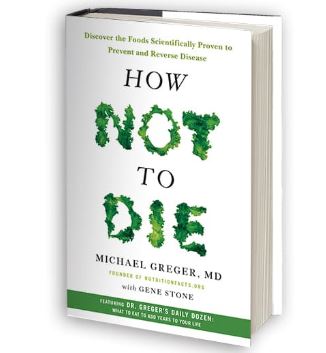 “For many years, the RDA [recommended daily allowance] for all vitamins were based on preventing deficiency, with a margin of safety,” but the miniscule amount of vitamin C needed to avoid scurvy, for example, is not necessarily the ideal intake for optimal health. What might the optimal intake of vitamin C be? To find out, let’s ask the body. But how? By seeing how much the body absorbs and excretes, which I go through in my video What Is the Optimal Vitamin C Intake?.
“For many years, the RDA [recommended daily allowance] for all vitamins were based on preventing deficiency, with a margin of safety,” but the miniscule amount of vitamin C needed to avoid scurvy, for example, is not necessarily the ideal intake for optimal health. What might the optimal intake of vitamin C be? To find out, let’s ask the body. But how? By seeing how much the body absorbs and excretes, which I go through in my video What Is the Optimal Vitamin C Intake?.
When we swallow 15 mg of vitamin C, the amount we’d get eating about a quarter of an orange, our body absorbs nearly 90 percent of it. If we instead take a supplement containing 1,250 mg of vitamin C, our body seems to realize that’s too much and clamps down on absorption at the intestinal lining level, and we end up absorbing less than half. By doing experiments where the level of intake is ratcheted up slowly, we can see when the body starts to say, “Okay. That’s enough.”
That magic level of intake appears to be about 200 mg a day. When we take up to 200 mg daily, our body absorbs it all. Above that level, however, the body tries to block further absorption, suggesting that our “intestinal vitamin C transport mechanisms… have evolved to fully absorb up to about 200 mg of vitamin C” a day.
In addition, vitamin C is reabsorbed in our kidneys back into our bloodstream to maintain our vitamin C blood levels around 70 or 80 micromoles per liter, which is what we reach at a vitamin C intake of about 200 mg a day. Even if we take ten times as much in vitamin C supplements, 2,000 mg a day, our body will just pee and poop out the excess to keep our blood levels in that narrow range of 70 to 80 micromoles per liter. Based on these kinds of data, one might “propose that 200 mg is the optimal daily intake of vitamin C…”
We can confirm that hypothesis using disease data. For example, at what daily intake of vitamin C is there the lowest stroke risk? Apparently, at about 200 mg a day. While dietary vitamin C intake was associated with lower stroke risk, vitamin C supplements were not, which is consistent with the overall body of evidence showing that antioxidant supplements in general don’t seem to protect against heart attacks or strokes.
Is it possible to get up to an intake of 200 mg of vitamin C a day without taking supplements? No problem. A single serving of fruits and vegetables may have about 50 mg each, so just five servings of fruits and veggies a day could get us to ideal blood levels.
Doctors can circumvent our body’s natural barriers to vitamin-C overload by dripping high levels of the vitamin directly into the bloodstream of cancer patients. Is this a good idea? See:
- Intravenous Vitamin C for Terminal Cancer Patients
- Vitamin C Supplements for Terminal Cancer Patients
- The Role of Vitamin C in the Treatment of Terminal Cancer
What other benefits or drawbacks might vitamin C have? See:
- Do Vitamin C Supplements Prevent Colds but Cause Kidney Stones?
- Treating Bacterial Vaginosis with Vaginal Vitamin C
- Can Vitamin C Help with Lead Poisoning?
- Yellow Bell Peppers for Male Infertility and Lead Poisoning
By Dr. Michael Greger
https://nutritionfacts.org/
 Read Dr. Greger’s Best Selling book: How Not To Die. Click the book for purchase information.
Read Dr. Greger’s Best Selling book: How Not To Die. Click the book for purchase information.
In addition to showing what to eat to help prevent the top 15 causes of death, How Not to Die includes Dr. Greger’s Daily Dozen—a checklist of the foods we should try to consume every day. Full of practical, actionable advice and surprising, cutting edge nutritional science, these doctor’s orders are just what we need to live longer, healthier lives.
All proceeds Dr. Greger receives from all book sales are donated to the 501c3 nonprofit charity NutritionFacts.org.


